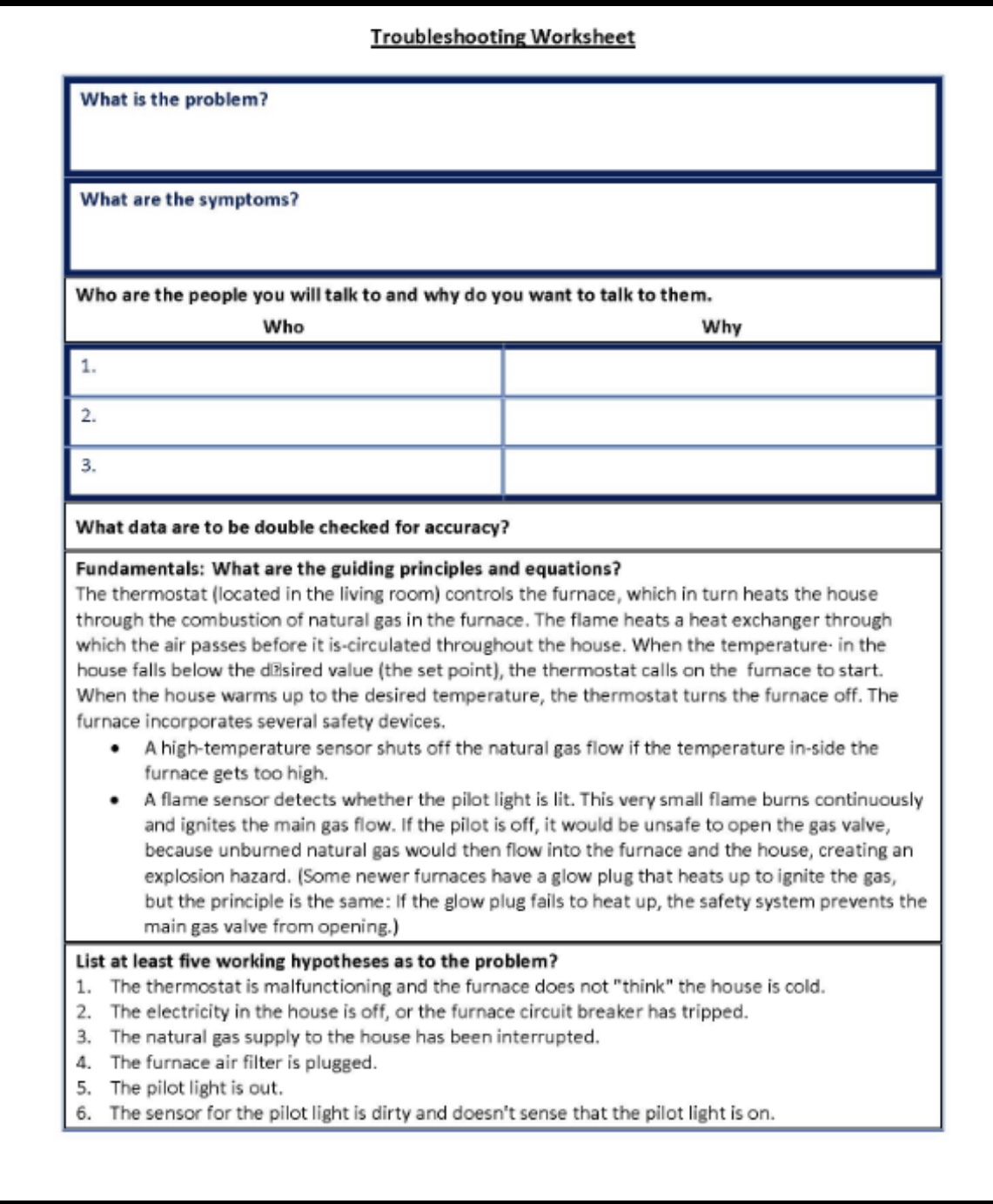

Problem Scenario: Make believe you live in a cold climate. Tonight your spouse shakes you awake at 5 a.m. on a late January morning. The house is cold and it is snowing outside. You usually turn the thermostat back a bit at night, but the temperature in the house is 52 degrees Fahrenheit (you determine this fact by looking at your desk thermometer). Something is obviously wrong. Your spouse says the house is too cold for your 18-month-old daughter and asks you to do something to get the heat back on. As a temporary measure, your spouse brings your daughter into your bed to keep her warm (temporarily solving one "real" problem). You start to solve the problem by mentally filling out the troubleshooting worksheet. Troubleshooting Worksheet What is the problem? What are the symptoms? Who are the people you will talk to and why do you want to talk to them. Who Why 1. 2. 3. What data are to be double checked for accuracy? Fundamentals: What are the guiding principles and equations? The thermostat (located in the living room) controls the furnace, which in turn heats the house through the combustion of natural gas in the furnace. The flame heats a heat exchanger through which the air passes before it is-circulated throughout the house. When the temperature- in the house falls below the dilisired value (the set point), the thermostat calls on the furnace to start. When the house warms up to the desired temperature, the thermostat turns the furnace off. The furnace incorporates several safety devices. - A high-temperature sensor shuts off the natural gas flow if the temperature in-side the furnace gets too high. - A flame sensor detects whether the pilot light is lit. This very small flame burns continuously and ignites the main gas flow. If the pilot is off, it would be unsafe to open the gas valve, because unburned natural gas would then flow into the furnace and the house, creating an explosion hazard. (Some newer furnaces have a glow plug that heats up to ignite the gas, but the principle is the same: If the glow plug fails to heat up, the safety system prevents the main gas valve from opening.) List at least five working hypotheses as to the problem? 1. The thermostat is malfunctioning and the furnace does not "think" the house is cold. 2. The electricity in the house is off, or the furnace circuit breaker has tripped. 3. The natural gas supply to the house has been interrupted. 4. The furnace air filter is plugged. 5. The pilot light is out. 6. The sensor for the pilot light is dirty and doesn't sense that the pilot light is on








